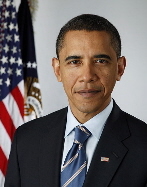How High Is Too High? Unemployment and the 2012 Presidential Race

But whatever shorthand calculus the public uses to determine the state of the economy, it is a fairly safe assumption that President Obama’s 2012 reelection fate is tied to an improvement in the current jobs situation and the economic recovery overall.
So, how much do things need to improve for Obama to win reelection? How high of a jobless rate is too high?
For starters, the employment numbers are languishing in ways not seen for decades.
The number of months unemployment has eclipsed 9.0 percent as an outgrowth of the most recent recession is already longer (21 and counting) than during even the Reagan recession (19).
The current recession is also almost assuredly going to eclipse that of the early 1980s for the number of months with unemployment at or above 8.0 percent – currently at 24 months and counting as compared to 27 months under Reagan (from November 1981 to January 1984).
Can Obama win in 2012 with this record and these numbers?
The deciding factor of the electorate may not be the unemployment rate per se, but the trajectory and pace of its decline.
For example, Ronald Reagan got reelected in a landslide in 1984 with an unemployment rate of 7.2 percent, while George H.W. Bush was defeated in 1992 with a nearly identical 7.4 percent rate. Rates were also declining for both presidents.
The difference, of course, was that unemployment had peaked in December of 1982 in Reagan’s first term – or 23 months before Election Day.
The recession under Bush Sr. saw the jobless rate peak in June of 1992 – or just five months before the election.
In short, Reagan had enough time for Americans to witness a gradual 50 percent reduction in unemployment over a two-year span, while unemployment under Bush had dropped only 5 percent from its peak earlier in the summer by Election Day.
As for Obama, the seasonally adjusted unemployment rate hit a high of 10.2 percent in October of 2009 – more than one full year in advance of his reelection bid than Ronald Reagan’s in 1984.
In other words, in the 15 months after unemployment reached its peak under Reagan, the jobless rate was slashed by 28 percent. During the last 15 months since the joblessness peaked under Obama, that rate has been cut by less than half that amount: 13 percent.
The trajectory of the decline in unemployment was also fairly stable under Reagan.
During the 23 month lead-up to the 40th President’s reelection, the jobless rate fell 15 times, remained the same four times, and ticked up just three times.
Meanwhile, during the 15 months since unemployment peaked under Obama, the rate has declined as often as it has remained the same (six months each) and already increased three times.
Obama clearly has time to turn the numbers around so that the state of the U.S. economy isn’t so bad that it essentially evaporates any chances he has for reelection.
The question is whether or not the Obama administration has the right policies in place and the right message to effectively connect with Americans in order to achieve what Reagan did in 1983 and 1984 on his way to four more years at the White House.
What Reagan was able to communicate – as president and as a candidate for reelection – is that his policies were leading America down the road to recovery, and the numbers were good enough to convince voters this was so.
The gray area for Obama is that analysts are not yet projecting unemployment will be flirting with 7 percent by November 2012 like they were for Reagan. As a result, the President will almost certainly not enjoy as large of an improvement on the jobs front (Reagan also saw unemployment peak at a more than a half a percent larger than that under Obama so there was a bigger mountain from which to descend).
But even if real world events and policy decisions put Obama within shouting distance of the numbers seen by Reagan, can the Great Orator deliver that message as well as the Great Communicator?
Follow Smart Politics on Twitter.
